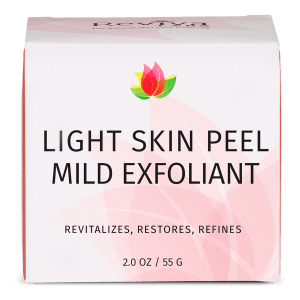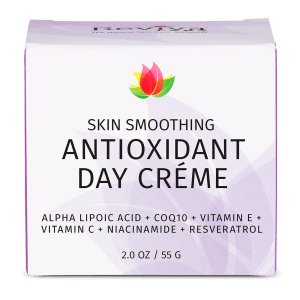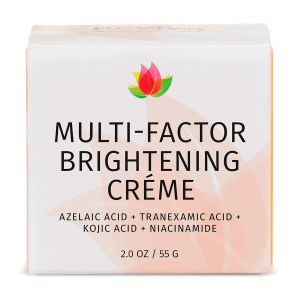Clean Beauty, Reviva Labs, Skin Care
Is Oil-Free Skincare Good for Oily Skin?
Picture this: You’ve just cleansed your face, and within an hour, a shiny sheen reappears as if your skin’s natural oils are staging a rebellion. If you’re someone with oily skin, this scenario is likely all too familiar. Managing oily skin often feels like walking a tightrope—trying to balance hydration without amplifying that unwanted glow. Amid all the buzz surrounding skincare, one question consistently pops up: Is oil-free skincare the answer for oily skin?
This query isn’t just a fleeting trend—it’s rooted in science, personal experience, and a growing need for solutions that work. The global skincare market is expected to reach $207.22 billion by 2028, according to Fortune Business Insights. This statistic isn’t just about numbers; it’s a testament to how seriously people are taking their skin concerns, including oily skin. Let’s unpack the role of oil-free products and whether they live up to the hype for those with overzealous sebaceous glands.
What Causes Oily Skin?
Before diving into the oil-free debate, let’s talk about oily skin itself. Why does your face produce more oil than others? It all boils down to the sebaceous glands. These small but mighty glands, located beneath your skin’s surface, produce sebum—a natural oil designed to keep your skin hydrated and protected.
For people with oily skin, these glands go into overdrive, leading to excess sebum production. Genetics, hormones, diet, and even stress can contribute to this. While sebum has its benefits, too much of it can clog pores, trigger acne, and leave skin looking perpetually shiny.
But here’s the catch: Stripping away all oils to combat the issue can backfire. When the skin is deprived of moisture, it often compensates by producing even more oil. This paradox is key when deciding whether to embrace or avoid oils in skincare.
The Promise of Oil-Free Skincare
Oil-free skincare products are designed without oils, relying instead on water-based ingredients or lightweight hydrators to provide moisture. The idea is straightforward: If your skin already produces excess oil, why add more? By excluding oils, these formulations aim to reduce shine, minimize clogged pores, and prevent acne breakouts. It sounds ideal for oily skin, right? But there’s more to the story.
The appeal of oil-free products lies in their ability to hydrate without heaviness. Many of these products use humectants like glycerin or hyaluronic acid to draw moisture into the skin, creating a plump, hydrated look without exacerbating oiliness. They often include lightweight emollients, which smooth and soften skin without leaving a greasy residue.
However, the term “oil-free” isn’t always synonymous with better. Some products labeled as oil-free may contain synthetic alternatives or alcohol-based ingredients that strip the skin. This can lead to irritation and, ironically, more oil production.
When Oil-Free Products Work Best
Oil-free products are particularly beneficial in certain scenarios. If you have sensitive, acne-prone, or combination skin that leans oily, these formulations can reduce the risk of clogged pores and breakouts. For those living in hot, humid climates, oil-free products can feel lighter and more breathable than their oil-based counterparts.
Dermatologists often recommend oil-free sunscreens, moisturizers, and serums for oily skin types. These products ensure the skin remains protected and hydrated without adding extra weight. Look for labels that mention “non-comedogenic,” as these products are specifically formulated not to block pores.
Still, not all oil-free skincare is created equal. The key lies in examining the ingredients list. Products with alcohol as a primary ingredient can dehydrate the skin, prompting it to overcompensate with even more oil.

The Case for Oils in Skincare
Here’s where things get interesting. While oil-free skincare can be a game-changer for some, it doesn’t mean all oils are the enemy of oily skin. In fact, certain oils—like jojoba, squalane, and rosehip—can benefit oily skin types when used correctly.
Jojoba oil, for instance, mimics your skin’s natural sebum, signaling to your glands that they don’t need to produce as much oil. Squalane is lightweight, non-comedogenic, and highly hydrating, making it an excellent option for oily skin. Rosehip oil, rich in antioxidants and vitamins, helps balance oil production while promoting a healthy complexion.
The idea isn’t to douse your face in oils but to choose the right ones in moderation. Some oil-based products, like cleansing oils, can even help dissolve excess sebum and impurities without disrupting your skin’s barrier.
How to Build a Routine for Oily Skin
Creating an effective routine for oily skin doesn’t mean going all-in on oil-free products or avoiding oils altogether. It’s about balance and understanding your skin’s needs. Start with a gentle cleanser that removes excess oil without over-drying. A salicylic acid-based cleanser can help clear out clogged pores and prevent breakouts.
Follow with an alcohol-free toner to refresh your skin and remove any leftover residue. Then comes the moisturizer—yes, even oily skin needs it! Opt for an oil-free, non-comedogenic moisturizer to hydrate without heaviness. If you’re hesitant about adding another layer, look for gel-based formulas that absorb quickly.
Don’t skip sunscreen. A broad-spectrum, oil-free SPF is crucial for protecting your skin from UV damage and preventing dark spots. At night, consider adding a treatment product, like a retinol serum, to control oil production and improve skin texture over time.
Should You Commit to Oil-Free Skincare?
The answer depends on your skin’s unique characteristics. If your skin is highly reactive, acne-prone, or frequently feels weighed down by products, oil-free options might be your best bet. They’re especially effective in the summer months or for people in humid climates.
However, if your oily skin feels tight or dehydrated after cleansing, you might benefit from incorporating lightweight, non-comedogenic oils into your routine. These oils can restore balance and prevent your skin from overproducing sebum.
Ultimately, the goal is not to eliminate all oils but to strike a balance. Skincare isn’t one-size-fits-all, and finding the right routine often requires experimentation. Listen to your skin—it knows what it needs better than any label can tell you.
The Takeaway
For many with oily skin, the allure of oil-free skincare is undeniable. These products can provide hydration without heaviness, reduce shine, and help prevent clogged pores. But they’re not the only answer. Carefully selected oils can also play a supportive role in managing oily skin.
The secret to healthy, balanced skin lies in understanding what works for you. Whether you choose oil-free products, embrace certain oils, or opt for a mix of both, consistency is key. Trust the process, be patient, and remember—your skin is as unique as you are.









